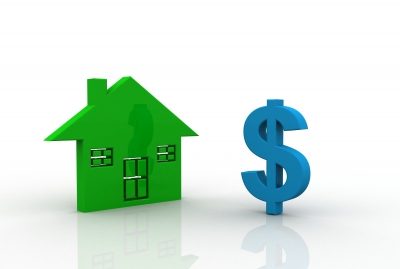Home equity loans, also referred to as second mortgages, allow homeowners to borrow against the equity they have built in their home. Equity is the difference between how much your home is worth and how much money you still owe on your mortgage. The amount of money you can borrow is dependent on how much equity you have, your credit score and income. In most cases, you can borrow up to 85 percent of the equity.
How Do They Work?
Home equity loans come in two forms. With a fixed-rate loan, your home equity lender gives you one lump sum all at once, and like your first mortgage, is paid back over time with set monthly payment. The second type of home equity loan is a line of credit. Rates are variable, and it operates very similar to a credit card. You are approved for a certain amount that you can tap into anytime you need it, either with a special check or credit card. Your monthly payments will depend on the current interest rate and the balance of the loan. As you pay it down, you can use the money again.
There are set terms to these loans, typically five to 15 years.
What Can I Use the Loan For?
Basically, you can use a home equity loan for anything you want, but that doesn’t mean you should. After all, you are putting your house up as collateral, so it is not a good idea to go this route for more frivolous things like a vacation.
The most common uses are upgrading the home, repairs, paying for college education or paying off high-interest debt. While rates are usually higher than the original mortgage, they are often much better than credit cards and other types of loans you may get. You can also write off interest on your taxes.
Depending on your need, it may be a better idea to get a line of credit rather than receiving the money all in one lump sum to avoid the temptation for using it for non-essential things.
Be Careful
Home equity loans can be a great way to consolidate debt, but be careful of falling into a common trap that will get you in financial hot water. Many people take on home equity loans to pay off existing debt, but as soon as those credit card balances are freed up, they start charging up a storm again, putting them right back where they started. If you are using a loan to clear up your debt issues, you must be disciplined in not maxing out those cards again.
If you are looking to make home improvements think carefully about the value they may add to the home. You may love that swimming pool, but it may not be a big draw for potential buyers down the line, and won’t add much to the value of your house.
For those of you considering home equity to cover education costs for children, and you are near retirement, think about how this loan may affect your retirement plan. It might be a good idea to consider other options.
Think carefully before taking out a home equity loan. Do you have the means to pay it back without compromising your other financial obligations? Are you taking it out for the right reasons? Make sure you have a good understanding of any loan you are considering before signing.





